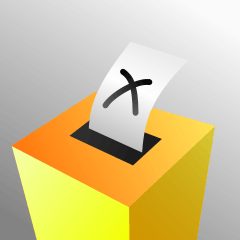Political communications
| Part of a series on |
| Politics |
|---|
 |
|
Academic disciplines |
|
Organs of government |
|
Related topics
|
|
Subseries |
| Politics portal |
Political communication is a subfield of communication and political science that is concerned with how information spreads and influences politics. Since the advent of the World Wide Web, the amount of data to analyze has exploded, and researchers are shifting to computational methods to study the dynamics of political communication. In recent years, machine learning, natural language processing, and network analysis have become key tools in the subfield.
Fields and areas of Study
The field of political communication concern 2 main areas:
- Election campaigns - Political communications involved in campaigning for elections.
- Government operations - This role is usually fulfilled by a Ministry of Communications, Information Technology or similar political entity. Such an entity is in charge of maintaining communication legislation and would be responsible for setting telecommunications policy and regulations as well as issuing broadcasting licenses, comments press releases, etc...
According to James Chesebro, there are five critical approaches to contemporary Political communications:
- Machiavellian - i.e. power relationships
- Iconic - symbols are important
- Ritualistic - Redundant and superficial nature of political acts - manipulation of symbols.
- Confirmation - political aspects looked at as people we endorse
- Dramatistic - politics is symbolically constructed. (Kenneth Burke)
The Role of Social Media in Political Communications
Social media has dramatically changed the way in which modern political campaigns are run. with more generation X and Generation Y coming into the voting population, social media is the platform on which the politicians need to establish themselves and engage with the voters. Especially in a digital age, social media will be more important than traditional media to the politicians.
Taking Australia as an example below: 86% of Australians access the Internet, and with a 17,048,864 voting age population,[1] around 14,662,023 voting population has access to Internet, and 65% of them use social media, which means 9,530,314 Australian voters use social media. (The 2013 Yellow™ Social Media Report found that among internet users 65% of Australians use social media, up from 62% last year.) [2]
With almost half of Australian voting population active on social media, political parties are adapting quickly to influence and connect with their voters.[3]
See also
- List of basic political science topics
- Government operations
- Political campaign
- Technological nationalism
- Social media
References
- ↑ http://www.idea.int/vt/countryview.cfm?CountryCode=AU
- ↑ "Political Campaign and Social Media". Political Marketing. Retrieved 2014-01-16.
- ↑ http://www.thesocialsavior.com/benefits-of-social-media-for-business/
External links
- Centre for European Political Communications
- The Political Communication Lab - Stanford University
- Working Papers on Political Communications - Kennedy School of Government
- Political Communications Web Archive Project
- A list of Political communications books
- Power and Persuasion (blog): Where Politics Meets Communication
- Digital Crusades: observing the political communications of populist-nativist parties SVP, PVV & the FN